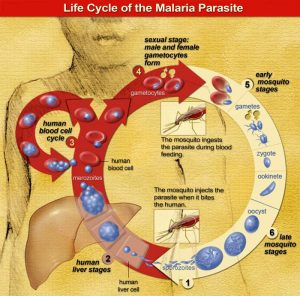NewsDesk @bactiman63
In a follow-up on the malaria situation in Sarasota County, Florida, the Florida Department of Health is issuing a statewide mosquito-borne illness advisory following four confirmed and recovered local cases of malaria in Sarasota County.

All four cases have been identified as Plasmodium vivax.
Malaria is transmitted through infected Anopheles mosquitoes. In Florida, there are eight identifiable Anopheles species, all of which are potentially capable of transmitting malaria; however only one, Anopheles quadrimaculatus, is a major malaria vector in Florida.
Residents throughout the state should take precautions by applying bug spray, avoiding areas with high mosquito populations, and wearing long pants and shirts when possible – especially during sunrise and sunset when mosquitos are most active.
Effective treatment is readily available through hospitals and other health care providers, health officials note.
Subscribe to Outbreak News TV on YouTube
Plasmodium vivax is the most common of the four human malaria species. Symptoms of Plasmodium vivax malaria are similar to those of other types of malaria and include cyclical fever with chills, headache, weakness, vomiting, and diarrhea.
Individuals with these symptoms should seek immediate medical attention.
Local transmission of malaria was not reported in Florida between 1948–1990. In June 1990, Florida had its first case of human malaria (P. vivax) in 42 years, acquired presumably through the bite of a mosquito in Gulf County.
Two induced cases of P. falciparum infection occurred in Broward County in 1996 and were probably related to iatrogenic spread in a hospital setting where a patient was being treated for imported malaria infection. Also in 1996, two cryptic cases of P. vivax infection occurred in Palm Beach County. One of these cases was in a homeless male and the other was in a resident living in a nearby area.
The largest P. vivax outbreak in recent Florida history (with eight cases) occurred in Palm Beach County in 2003 in an area located very close to the 1996 Palm Beach County malaria cases. One Manatee County
resident acquired P. falciparum via a blood transfusion in 2009. In November 2010, P. falciparum infection with cryptic origin (possibly Florida-acquired) was reported in Duval County.
The Department advises the public to remain diligent in their personal mosquito protection efforts by remembering to “Drain and Cover.”
DRAIN standing water to stop mosquitoes from multiplying.
- Drain water from garbage cans, house gutters, buckets, pool covers, coolers, toys, flowerpots, or any other containers where sprinkler or rainwater has collected.
- Discard old tires, drums, bottles, cans, pots and pans, broken appliances and other items that aren’t being used.
- Empty and clean birdbaths and pet’s water bowls at least once or twice a week
- Protect boats and vehicles from rain with tarps that don’t accumulate water.
- Maintain swimming pools and keep appropriately chlorinated. Empty plastic swimming pools when not in use.
COVER doors and windows with screens to keep mosquitoes out of your house.
- Repair broken screening on windows, doors, porches, and patios.
COVER skin with clothing or appropriate repellent.
- Clothing – Wear shoes, socks, and long pants and long-sleeves. This type of protection may be necessary for people who must work in areas where mosquitoes are present.
- Repellent – Apply mosquito repellent appropriately.
- Always use repellents according to the label. Repellents with DEET, picaridin, oil of lemon eucalyptus, para-menthane-diol, 2-undecanone, and IR3535 are effective.
- Use mosquito netting to protect children younger than 2 months old.
Related:
Texas reports locally acquired malaria case
Cyclospora: More than 200 cases reported in the US since April 1
Norovirus: Viking Cruises, Viking Neptune, is the latest cruise ship outbreak this year

